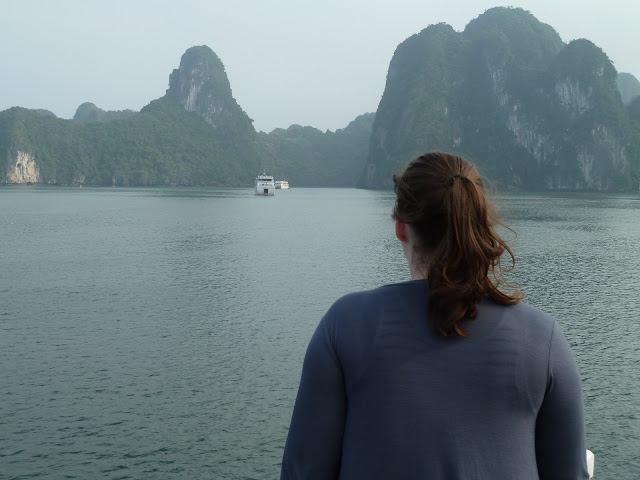Tuesday December 11 - Wednesday 12
While stations in China are chaotic, messy and overcrowded, the cross country services themselves are reasonably efficient and the carriages fairly clean.
A 14 hour overnight journey in a sleeper compartment shared with three other people is not something anyone looks forward to - but at least it is reasonably comfortable.
The same can't be said in Vietnam.
.JPG) |
| Bed for the night: A top bunk in the four bed compartment |
The roads are so bumpy and the go for broke driving style so hair-raising that the rails looked like the safest option. Flying was out of the question because it is so expensive.
Hanoi train station was bombed by the Americans during the Vietnam War and although its been repaired since then it remains run down and is desperately in need of an overhaul.
The people are so poor here that a significant proportion of those getting our train were Western tourists.
.JPG) |
| Kelly-Ann reads her Kindle sitting on her bed as we head towards Da Nang |
941,000 dong (around £30) bought us a soft sleeper bed each in a small compartment we shared with two Vietnamese men who were getting off at 4am.
They decided to sit on our beds for half an hour uninvited and chatter away before retiring for the night at 11.30pm.
The trains themselves are remarkably similar to those in China - just at least 20 years older.
I'd wager that this same train was running up and down the same single track line during the Vietnam War 40 years ago.
The stuffy compartment was apparently air conditioned although the cooling system had clearly seen better days.
The bedsheets may have been cleaned at some point in 2012, although it's a moot point.
Ignoring it all we drifted off to sleep as the train trundled slowly out of Hanoi.
.JPG) |
| Scenic: The view out of the window in the morning |
With a working lock on the door (so often a luxury in public toilets in Asia) I have no idea why he was doing it.
These toilets are truly vile and impossible to sit on. The stainless steel bowl fills halfway up when flushed and the train is so bumpy the water slops out onto the soaking wet floor.
Of course many people don't believe it's necessary to flush - if indeed they have hit the target in the first place - so it's largely human waste and not water glistening on the ground.
It's not even worthwhile venturing into the wash room - because you won't come out cleaner than when you went in.
A lady wheeled a trolley full of what I believe were spring rolls but they were quite clearly not fit for human consumption. I'd had enough.
Outside the view was occasionally spectacular, more often just mile after mile of flat barren countryside.
Trains are the least bad way of navigating your way across Vietnam - but this was far from a comfortable experience.
.JPG)















































